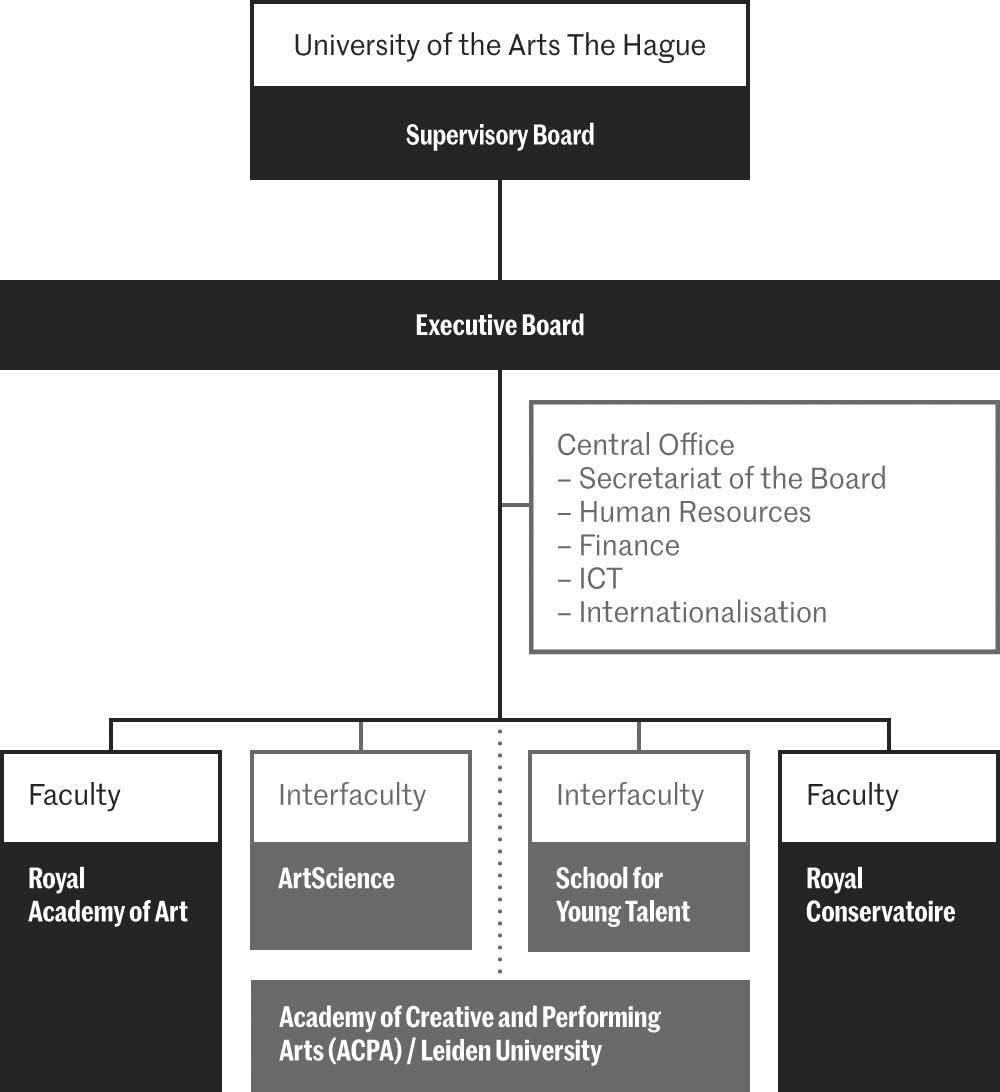The University of the Arts The Hague is the overarching organisation of the Royal Academy of Art, The Hague (KABK) and the Royal Conservatoire (RC).
Organisational chart University of the Arts The Hague

The University of the Arts The Hague is run by an Executive Board, which is supervised by a Supervisory Board. The Supervisory Board determines the number of members of the Executive Board and of the Supervisory Board.
The Executive Board comprises:
- Huug de Deugd, Chair
The University oversees both faculties of the University of the Arts (the Royal Academy of Art and the Royal Conservatoire) who have their own director and also two interfaculty programmes, ArtScience and the School for Young Talent.
The University of the Arts works with Leiden University to reciprocally develop education and (doctoral) activities in the arts through the Academy of Creative and Performing Arts (ACPA). The management of ACPA is appointed by the Board of the Humanities faculty at Leiden University at the proposal of the Executive Board of the University of the Arts. The Central Bureau of the University of the Arts The Hague reports to the Executive Board.
Institutional plan 2019-2024
In the institutional plan of the University of the Arts The Hague for the period 2019 to 2024 we describe the University's ambition and highlight the course we will take to achieve it.
Read the Institutional Plan 2019-2024
Information for employees
Information for employees of the Royal Academy of Art and the Royal Conservatoire is published on the website of the University of the Arts, including topics such as personnel policy, governance and supervision, participation, rules of conduct and the ANBI-status (‘institution allocating to the general good’ (in Dutch: ‘algemeen nut beogende instelling’):
- Personnel policy: information on the hbo-cao, the health and safety plan, as well as contact information of the Human Resources department (HR).
- Governance and supervision: information on the Executive Board, the Supervisory Board, the annual report and financial statements, statutes and regulations, and the Rules of Conduct.
- Participation: information on the Academy Council (DMR-KABK), the University Council (CMR-HdK) and the Study Programme Committees.
-
Rules of Conduct: information on the Code of Integrity or Code of Conduct policies regarding complaints and inappropriate behaviour, and so-called Whistle-blower Regulations.